SUMMARY
This is AI generated summarization, which may have errors. For context, always refer to the full article.
- GPH-MILF peace talks continue despite MNLF attack
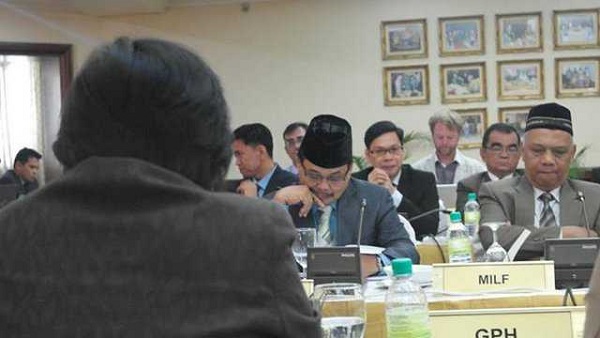
The Philippine government and the Moro Islamic Liberation Front (MILF) opened the 40th round of peace talks in Kuala Lumpur on Tuesday, September 10, with a firm resolve to thresh out the remaining details of the final agreement for the proposed Bangsamoro political entity. In spite of clashes between the military and a breakaway group of Moro National Liberation Front (MNLF) fighters in Zamboanga City, members of the peace panel resolved to continue the talks. “Those behind the continued acts of violence in Mindanao do not want the current peace process between the Government and the Moro Islamic Liberation Front to succeed. Their actions intend to derail the process using violence and disinformation to spread fear and chaos in Mindanao,” their joint statement said. This round of talks is scheduled to run for 10 days, longer than usual. Both parties aim to ink a deal on how power will be shared between the Bangsamoro political entity and the central government, as well as how the normalization process for Muslim Mindanao will proceed, including terms for the decommissioning of firearms.
Read the full story on Rappler. - More than 4,000 evacuees at Zamboanga City grandstand
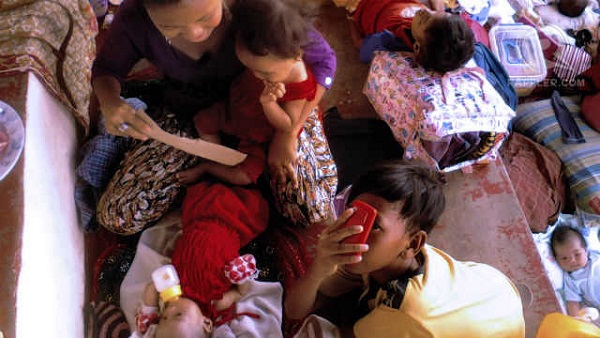
Ongoing clashes between the military and fighters from the Moro National Liberation Front (MNLF) have displaced more than 2,900 families, according to the Department of Social Welfare and Development (DSWD). Around 4,400 evacuees alone have taken temporary refuge at the Joaquin Enriquez Memorial Grandstand in Zamboanga City. According to a volunteer relief worker, the evacuation center is hot, crowded and lacks proper sanitation facilities. “Long lines are established during food distributions, though instructions sometimes cause confusion among the people,” added volunteer Regine Mendoza. The DSWD has said some 9,440 people are directly affected by the armed conflict raging in the city. Both the military and the MNLF fighters said they have adopted a defensive posture.
Read the full story on Rappler. - Diplomacy in dealing with Syria… for now
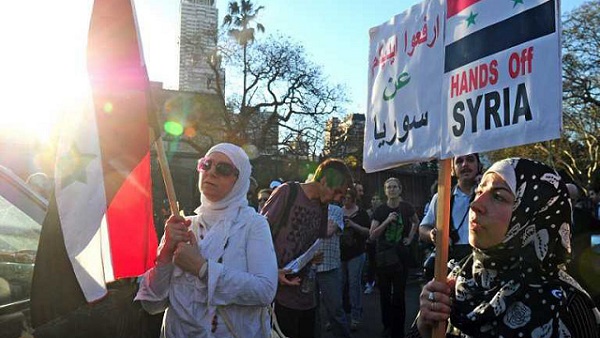
The United States pleaded with Syrian President Bashar al-Assad Tuesday, September 10, to destroy his chemical arms and scheduled top-level talks with Russia on a face-saving way to head off air strikes on Syria. US President Barack Obama meanwhile met lawmakers ahead of a televised national address, in which he will warn that the threat of US force must be maintained to drive genuine diplomacy to end a showdown over a chemical attack in Damascus. On Monday, September 9, Russia’s foreign minister broached a plan to have Syria give up its chemical weapons arsenal to prevent a foreign military attack. The plan has gained diplomatic currency rather swiftly, with many seeing it as an opportunity to avert a full-blown military intervention in the troubled nation. Obama meanwhile went to Capitol Hill to meet separately with Senate Democrats and Republicans, to tout his plan for a “limited” military response to the use of chemical weapons by the Assad regime. Lawmakers said Obama had asked them for a pause in legislative action to allow diplomacy time to work.
Read the full story on Rappler. - Napoles party-list group linked to ‘Hello Garci’ tape

The Ang Samahan ng mga Mangangalakal Para sa Ikakaunlad ng Lokal na Ekonomiya Inc (A-SMILE), a party-list group set up by Jaime Napoles and Ronald Francisco Lim (brother of Janet Napoles), figured in a wiretapped conversation of disgraced poll commissioner Virgilio Garcillano. The “Hello Garci” tape prompted calls for Arroyo’s resignation following suspicion she rigged the 2004 presidential elections. In the wiretapped conversation, Garcillano mentioned people behind A-SMILE as among those who sought his help in manipulating election results. A-SMILE failed to garner the required percentage of votes to earn a seat in Congress in the 2004 elections. It got 133,425 votes or 1.048 % of the votes cast for the party list. Despite the exposure of A-SMILE in the Garcillano wiretap scandal, it was still able to get accreditation and participate in the party-list race in the 2007 mid-term polls.
Read the full story on Rappler. - NSA violated privacy rules
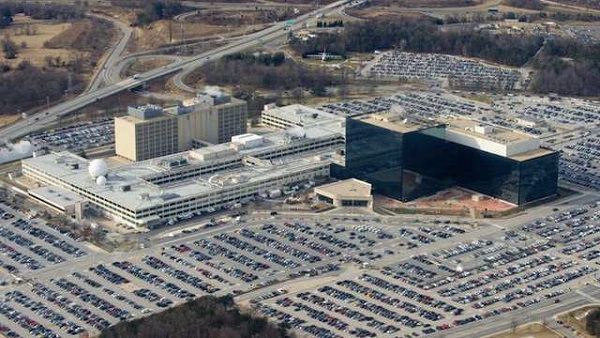
US intelligence officials declassified documents Tuesday, September 10, revealing the National Security Agency violated privacy rules for 3 years when it sifted phone records of Americans with no suspected links to terrorists. The revelations raised fresh questions about the NSA’s ability to manage the massive amount of data it collects and whether the US government is able to safeguard the privacy of its citizens. The government was forced to disclose the documents by a judge’s order after a Freedom of Information lawsuit filed by the Electronic Frontier Foundation, a non-profit group promoting digital privacy rights and free speech. The documents, including hundreds of pages of court orders, reveal privacy violations from 2006 to 2009 in NSA’s collection of phone records or “metadata,” as part of the agency’s effort to track potential terror plots. The release came after the scale of NSA spying was exposed in a series of bombshell media leaks in recent months by former US intelligence contractor Edward Snowden, who has sought asylum in Russia.
Read the full story on Rappler. - New colors for Apple’s latest iPhones

Apple revealed its second new design for the iPhone 5, called the iPhone 5S, at its Cupertino headquarters on September 10 (September 11, Philippine time). The iPhone 5S will be made of high-grade aluminum, with edges that are diamond-cut and chamfered, much like the current iPhone 5. It will come in silver, gold, and space gray. But unlike its predecessor, the iPhone 5S has a feature known as TouchID. It’s basically a fingerprint sensor for added security on your device. The tech company also launched a cheaper model of its mobile phones, called the iPhone C, with a casing made out of colorful plastic. The iPhone C is intended to expand Apple’s market share in emerging economies such as China, India and Brazil where competition is stiff from cheaper mobile manufacturers like Samsung. The new iPhones are expected to launch on September 20 in key Apple markets while the rest of the world can expect the phones in December.
Read the full story on Rappler. - Mining projects worth $12-B on hold over revenue-sharing issues

The Chamber of Mines of the Philippines said Tuesday, September 10, the government will miss its mining investment target of $16 billion by 2016 as investors put projects on hold pending the passage of a new revenue-sharing scheme. During the 2013 Mining Conference, the chamber’s president Benjamin Romualdez said: “about $16 billion in mining investments that were supposed to happen during this administration will not happen. Let me tell you now that investments in the next 3 years will certainly, dramatically go down.” Romualdez also said that investors are shying away due to “proposals like the one being floated recently – a 10% gross (or 50% net) excise tax on mining.” He added, “This regime will simply kill the mining industry.” Senate President Franklin Drilon, the keynote speaker in the conference, vowed Congress will determine a “fair” and “equitable” revenue-sharing arrangement between government and the industry. Citing mining’s “high” social and environmental costs, he said the state must have a fair share in mining revenues. Romualdez, however, insisted that the current tax regime “is on par with the rest of the mining world today.”
Read the full story on Rappler. - Aquino legacy in peril

Rappler’s Editor-at-large, Marites Dañguilan Vitug, writes: “Halfway into his term, President Aquino faces the worst corruption scandal in his administration, a “land mine” left by his predecessor, Gloria Macapagal-Arroyo, but the roots of which lie deep in Philippine political culture. The Aquino administration has also been rocked by the biggest indignation rally which, while it was against the pork barrel, called on the President to fix the mess. The wholesale theft of multi-billion pesos in taxpayers’ money by Janet Napoles, her partners—legislators and officials in the various government agencies—and other Napoles-like syndicates shows that fighting corruption goes beyond fierce rhetoric, shaming and naming the thick-faced rascals, and leading by example. It requires structural reforms that will make the working environment hostile to graft and grease. Ironically, this pork barrel crisis presents a big opportunity for the President to change the country’s political landscape and leave a lasting mark as a true reformist.”
Read Marites Vitug’s Thought Leaders column on Rappler. - Former Olympic gold medalist elected president of IOC
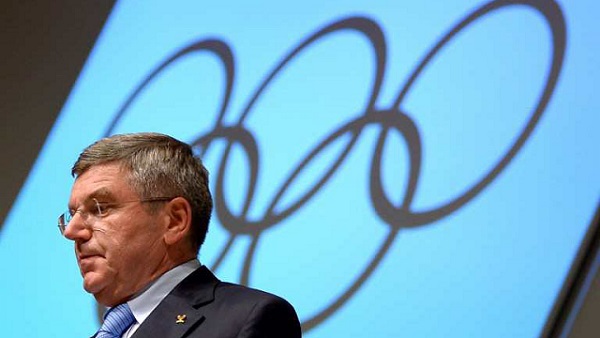
A former Olympic gold medalist from Germany, Thomas Bach, was elected president of the International Olympic Committee on Tuesday, September 10, marking the first time the position is held by an Olympic champ. But Bach was quick to dismiss suggestions he owed his election victory to Kuwaiti IOC member Sheikh Ahmed al-Sabah. The 59-year-old German — who trounced his five rivals to win in the second round with 49 votes — had been accused by Swiss rival Denis Oswald on Monday, September 9, who spoke of his close business ties with Kuwait. Bach, though, said during his campaign he had taken particular care not to make promises to any of the IOC members so he didn’t start his eight-year spell owing anyone anything. “At my presentation to the IOC members in July in Lausanne I was the candidate who made it very clear to them that I do not make any promises with regard to issues or personal requests,” said Bach in reply to a question regarding his ties with the Sheikh.
Read the full story on Rappler. - Kris Aquino, other celebs take MRT to beat traffic

Heavy rains that pummeled Metro Manila almost paralyzed major roads on Thursday afternoon, September 11. Thousands of commuters went to social media to rant about being stuck in traffic for hours. For presidential sister Kris Aquino, however, traffic wasn’t something to complain about. Aquino posted pictures of herself riding the Metro Rapid Transit (MRT) train along Edsa to rush to an appointment because her car was stuck in traffic. She commented on her photo: “Me on the MRT. Made it to the awarding ceremony… People were so NICE. What a memorable experience!” Boxing champ and congressman Manny Pacquiao also reportedly took public transportation to get to his appointment in Quezon City. Truly, traffic is a great social equalizer.
Read the full story on Rappler.
Add a comment
How does this make you feel?
There are no comments yet. Add your comment to start the conversation.